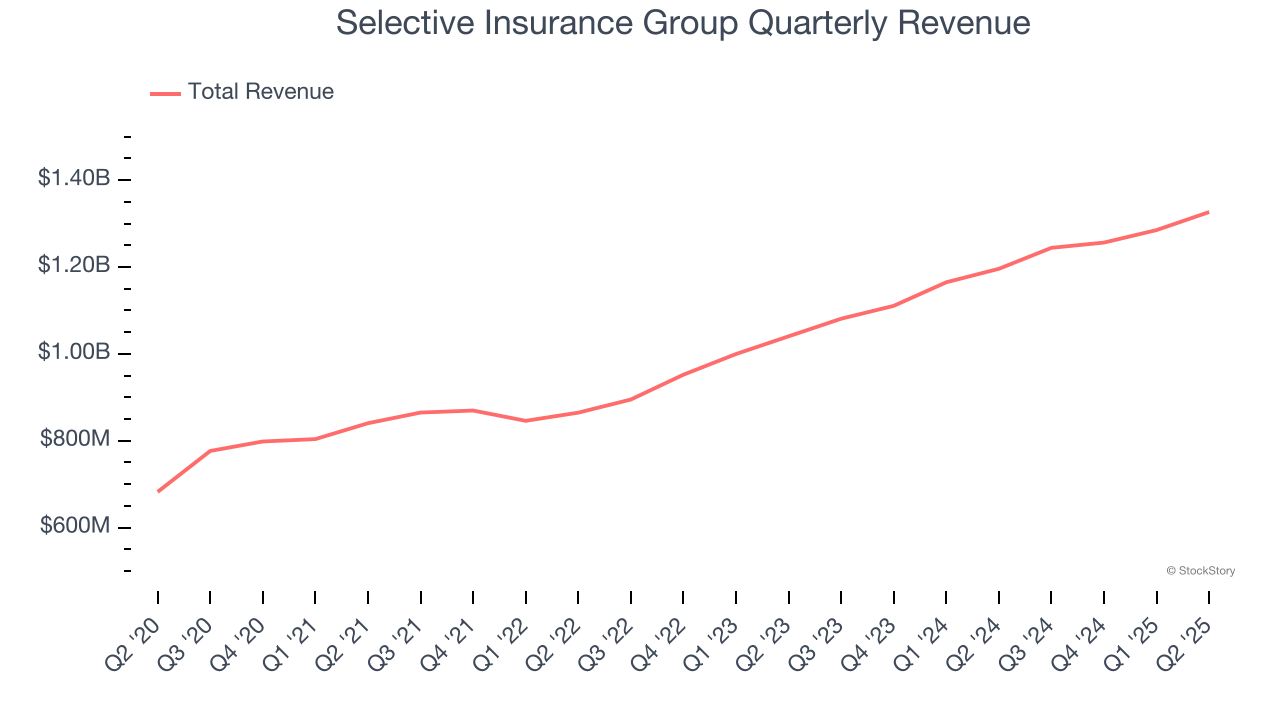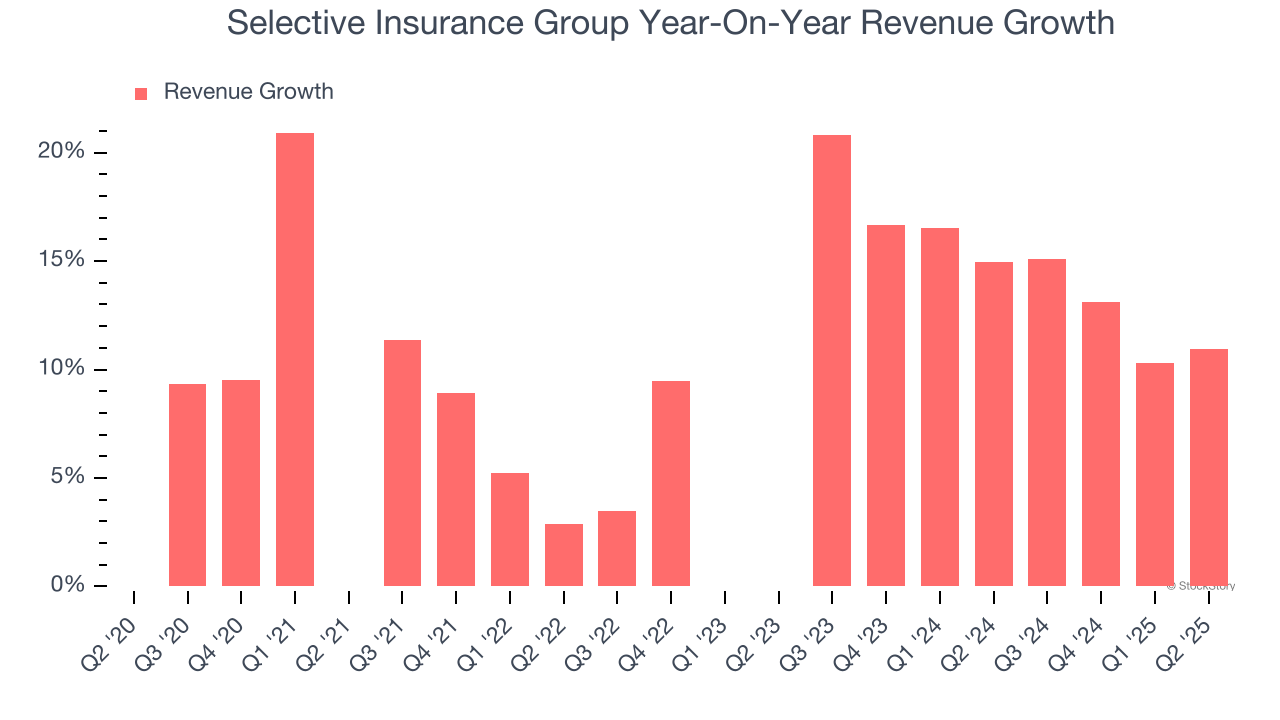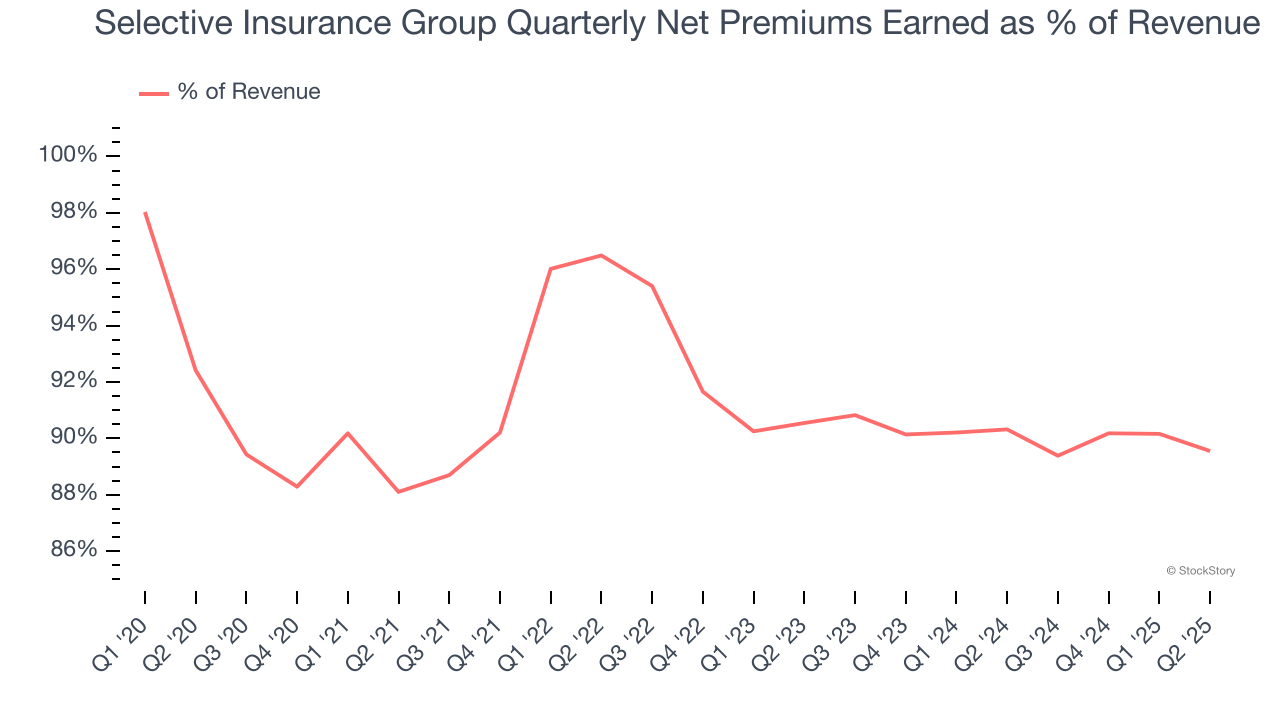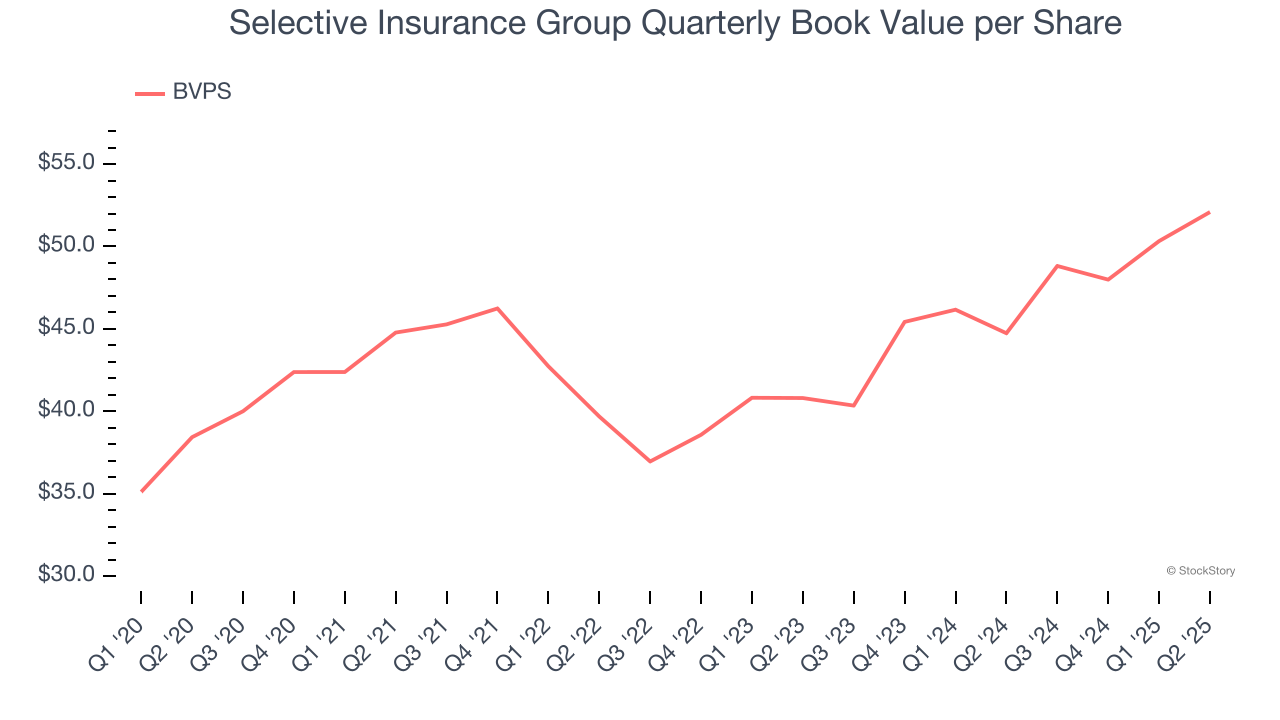
Property and casualty insurer Selective Insurance Group (NASDAQ: SIGI) met Wall Street’s revenue expectations in Q2 CY2025, with sales up 10.9% year on year to $1.33 billion. Its GAAP profit of $1.31 per share was 10.1% below analysts’ consensus estimates.
Is now the time to buy Selective Insurance Group? Find out by accessing our full research report, it’s free.
Selective Insurance Group (SIGI) Q2 CY2025 Highlights:
- Net Premiums Earned: $1.19 billion vs analyst estimates of $1.19 billion (10% year-on-year growth, 0.5% miss)
- Revenue: $1.33 billion vs analyst estimates of $1.32 billion (10.9% year-on-year growth, in line)
- Combined Ratio: 100% vs analyst estimates of 98.5% (1.7 percentage point miss)
- EPS (GAAP): $1.31 vs analyst expectations of $1.46 (10.1% miss)
- Market Capitalization: $5.53 billion
“The combined ratio of 100.2% reflects continued pressures from elevated severities due to social inflation, which drove unfavorable prior year casualty reserve development in the quarter,” said John J. Marchioni, Chairman, President and Chief Executive Officer.
Company Overview
Founded in 1926 during the early days of automobile insurance, Selective Insurance Group (NASDAQ: SIGI) is a property and casualty insurance company that sells commercial, personal, and excess and surplus lines insurance products through independent agents.
Revenue Growth
Insurers earn revenue three ways. The core insurance business itself, often called underwriting and represented in the income statement as premiums earned, is one way. Investment income from investing the “float” (premiums collected upfront not yet paid out as claims) in assets such as fixed-income assets and equities is the second way. Fees from various sources such as policy administration, annuities, or other value-added services is the third.
Thankfully, Selective Insurance Group’s 12.9% annualized revenue growth over the last five years was excellent. Its growth beat the average insurance company and shows its offerings resonate with customers.

We at StockStory place the most emphasis on long-term growth, but within financials, a half-decade historical view may miss recent interest rate changes, market returns, and industry trends. Selective Insurance Group’s annualized revenue growth of 14.7% over the last two years is above its five-year trend, suggesting its demand was strong and recently accelerated.  Note: Quarters not shown were determined to be outliers, impacted by outsized investment gains/losses that are not indicative of the recurring fundamentals of the business.
Note: Quarters not shown were determined to be outliers, impacted by outsized investment gains/losses that are not indicative of the recurring fundamentals of the business.
This quarter, Selective Insurance Group’s year-on-year revenue growth was 10.9%, and its $1.33 billion of revenue was in line with Wall Street’s estimates.
Net premiums earned made up 90.7% of the company’s total revenue during the last five years, meaning Selective Insurance Group lives and dies by its underwriting activities because non-insurance operations barely move the needle.

Our experience and research show the market cares primarily about an insurer’s net premiums earned growth as investment and fee income are considered more susceptible to market volatility and economic cycles.
Here at StockStory, we certainly understand the potential of thematic investing. Diverse winners from Microsoft (MSFT) to Alphabet (GOOG), Coca-Cola (KO) to Monster Beverage (MNST) could all have been identified as promising growth stories with a megatrend driving the growth. So, in that spirit, we’ve identified a relatively under-the-radar profitable growth stock benefiting from the rise of AI, available to you FREE via this link.
Book Value Per Share (BVPS)
Insurance companies are balance sheet businesses, collecting premiums upfront and paying out claims over time. The float–premiums collected but not yet paid out–are invested, creating an asset base supported by a liability structure. Book value per share (BVPS) captures this dynamic by measuring these assets (investment portfolio, cash, reinsurance recoverables) less liabilities (claim reserves, debt, future policy benefits). BVPS is essentially the residual value for shareholders.
We therefore consider BVPS very important to track for insurers and a metric that sheds light on business quality. While other (and more commonly known) per-share metrics like EPS can sometimes be lumpy due to reserve releases or one-time items and can be managed or skewed while still following accounting rules, BVPS reflects long-term capital growth and is harder to manipulate.
Selective Insurance Group’s BVPS grew at a mediocre 6.3% annual clip over the last five years. However, BVPS growth has accelerated recently, growing by 13% annually over the last two years from $40.81 to $52.09 per share.

Over the next 12 months, Consensus estimates call for Selective Insurance Group’s BVPS to grow by 17.4% to $55.36, top-notch growth rate.
Key Takeaways from Selective Insurance Group’s Q2 Results
It was good to see Selective Insurance Group meet analysts’ revenue expectations this quarter. On the other hand, its EPS missed and its book value per share fell short of Wall Street’s estimates. Overall, this quarter could have been better. The stock traded down 5.3% to $85.71 immediately after reporting.
Selective Insurance Group may have had a tough quarter, but does that actually create an opportunity to invest right now? When making that decision, it’s important to consider its valuation, business qualities, as well as what has happened in the latest quarter. We cover that in our actionable full research report which you can read here, it’s free.




